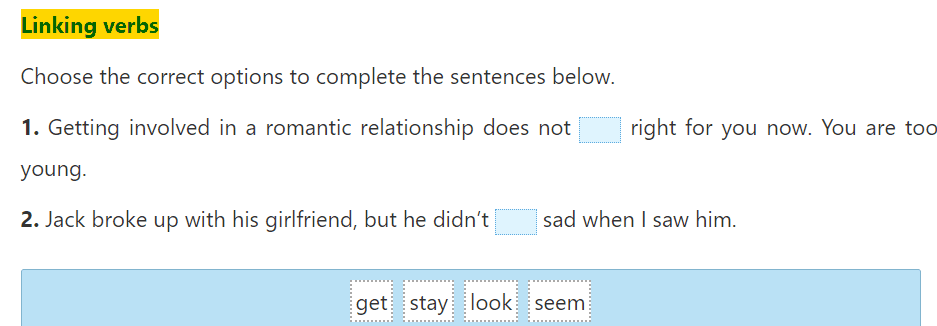Bài học cùng chủ đề
Báo cáo học liệu
Mua học liệu
Mua học liệu:
-
Số dư ví của bạn: 0 coin - 0 Xu
-
Nếu mua học liệu này bạn sẽ bị trừ: 2 coin\Xu
Để nhận Coin\Xu, bạn có thể:

Luyện tập SVIP
Match the phrases with the sescriptions to make sentences.

Choose the correct phrases (a-f) to complete the conversation.
Kevin: Hi, everyone. Our discussion topic today is further education. Minh, would you like to start?
Minh: Well, I think entering university after graduating from secondary school will be (1) . Higher education will provide us with more knowledge and critical thinking skills. Moreover, a bachelor's degree will help us to find a job more easily.
Kevin: How about you, Anna, which option (2) ? Vocational or academic courses?
Anna: Well, (3) take career-based courses. I think I need some skills for getting a job first. Then I can decide whether I want to pursue an undergraduate degree or not.
Mai: I totally agree with Anna. Now there are also part-time courses, which allow young people to pursue further education while working. We can study independently and pay our tuition fees.
Anna: That's right. I (4) . With the development of the Internet, we don't need to be campus-based students. We can work and study simultaneously.
Mai: Is that what we call ‘cloud' learning?
Anna: Yes. It's a new term. Moreover, most of the courses are now credit-based, which brings more flexibility in the programme schedule.
Minh: (5) is the availability of student exchange programmes. These are excellent opportunities for students to travel to earn credits, broaden their knowledge or experience new cultures.
Kevin: So, in summary, (6) in further education – campus or cloud-based, full-time or part-time courses, and exchange programmes. We're so lucky!
(Kéo thả hoặc click vào để điền)
Kevin: Hi, everyone. Our discussion topic today is further education. Minh, would you like to start?
Minh: Well, I think entering university after graduating from secondary school will be the best choice for us. Higher education will provide us with more knowledge and critical thinking skills. Moreover, a bachelor's degree will help us to find a job more easily.
Kevin: How about you, Anna, which option would you prefer? Vocational or academic courses?
Anna: Well, I'd rather take career-based courses. I think I need some skills for getting a job first. Then I can decide whether I want to pursue an undergraduate degree or not.
Mai: I totally agree with Anna. Now there are also part-time courses, which allow young people to pursue further education while working. We can study independently and pay our tuition fees.
Anna: That's right. I prefer online and distance courses. With the development of the Internet, we don't need to be campus-based students. We can work and study simultaneously.
Mai: Is that what we call ‘cloud' learning?
Anna: Yes. It's a new term. Moreover, most of the courses are now credit-based, which brings more flexibility in the programme schedule.
Minh: One more thing to consider is the availability of student exchange programmes. These are excellent opportunities for students to travel to earn credits, broaden their knowledge or experience new cultures.
Kevin: So, in summary, there are different choices for us in further education – campus or cloud-based, full-time or part-time courses, and exchange programmes. We're so lucky!
Read the conversation again and answer the questions.
1. Why does Minh think that entering university after secondary school is the best choice?
2. Why does Anna prefer career-based courses?
3. What are the modes of attendance mentioned in the conversation?
4. What is one of the advantages of ‘cloud' learning?
5. How can credit-based courses benefit students?
Discuss your choices and preferences for futher education. Use the expressions in the conversation.


Bạn có thể đánh giá bài học này ở đây